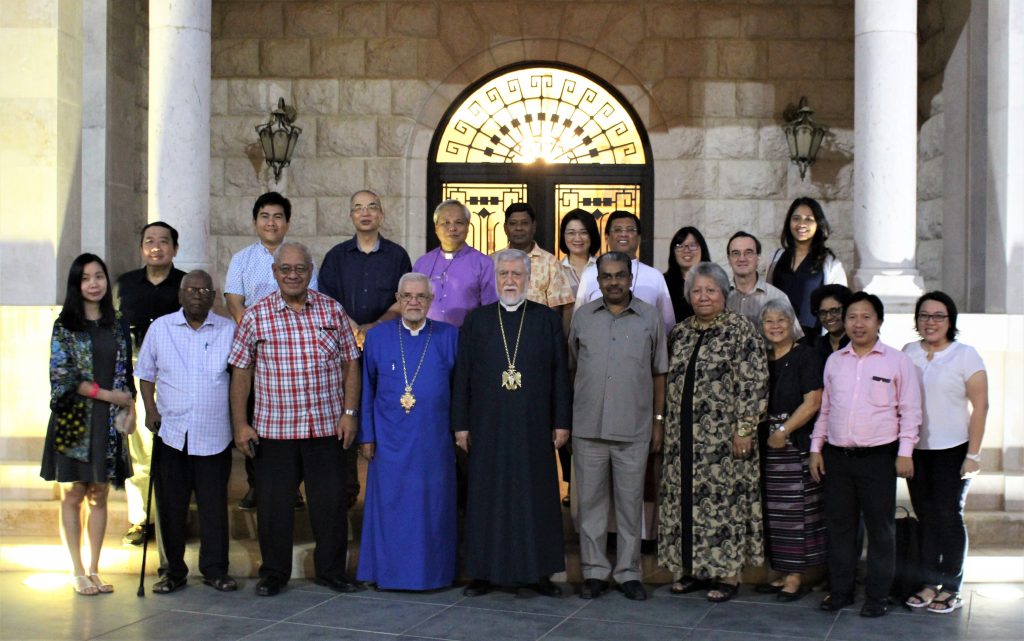CCA's Efforts at Nurturing Ecumenism in Asia will Bear Fruit, Says CCA General Secretary

Ecumenism is "hope in action", hence the current realities of stagnation or uncertainty in the ecumenical movement in general are not a permanent fixture, observed Dr. Mathews George Chunakara, the General Secretary of CCA in his report to the Executive Committee meeting being held at Antelias, Lebanon.
The CCA General Secretary expressed the hope that "our efforts to reaching the goal of the visible unity of all God’s people and all God’s creation will be attained through our humble and minor efforts in Asia".
"Our efforts to participate in God’s mission of planting and nurturing ecumenism in Asia will be a small or minor effort at this stage. But, we need to plant the small seed with the hope that it will grow and become a larger garden plant, or a bigger tree which might produce fruits in future. This is what we are reminded through a parable Jesus described: 'a mustard seed, which is the smallest of all seeds on earth. Yet when planted, it grows and becomes the largest of all garden plants, with such big branches that the birds can perch in its shade' (Mark: 31-32),” said Dr. Mathews George.
The General Secretary called the privilege to meet in the Middle East region, the cradle of Christianity, a historic ecumenical milestone and gratefully mentioned the gracious invitation and hospitality extended by the Catholicosate of Cilicia of the Armenian Apostolic Church in Antelias, Lebanon.
While describing the positive signs of development for peace in the Korean peninsula and the ecumenical movement's focus in this direction, the CCA General Secretary said the CCA also had a responsibility to address the growing trend of religious intolerance in Asia.
The General Secretary divulged the plan of CCA to hold an ‘Asian Inter-Religious Summit on Building Peace and Moving beyond Conflicts’, which will be organised in March 2019, he told the committee, where he hoped to bring together at least 100 leaders of various religions from all over Asia.
The CCA organised 37 programmes in 2017, and the first half of 2018 saw the observance of Asia Sunday-2018 on the theme, ‘Embracing the Differently Abled, and Upholding Their Dignity’. Referring to the proposed plan of building CCA headquarters as a priority, he told the annual session of the Executive Committee meeting to explore the possibility of linking the establishment of a full-fledged Asian Ecumenical Institute with the headquarters project.
The General Secretary also reported to the governing body of CCA that preparations were on for the Asian Ecumenical Women's Assembly (AEWA) in 2019 and General Assembly in 2020.










